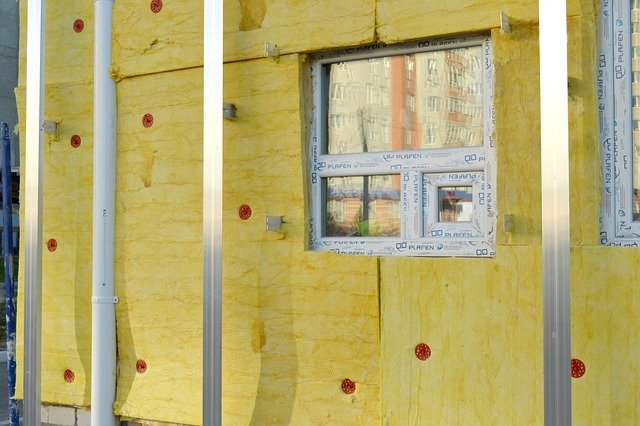Window Replacement: Enhancing Your Home's Comfort and Efficiency
Window replacement is a significant home improvement project that can transform your living space, boost energy efficiency, and enhance your property's value. This comprehensive guide will explore the key aspects of window replacement, from understanding the benefits to making informed decisions about materials and styles.

How do window upgrades improve insulation?
Window upgrades can significantly enhance your home’s insulation, leading to improved energy efficiency and comfort. Modern replacement windows often feature double or triple-pane glass with inert gas fills between the panes, such as argon or krypton. These gases act as excellent insulators, reducing heat transfer and minimizing drafts. Additionally, low-emissivity (Low-E) coatings on the glass help reflect heat back into your home during winter and keep it out during summer, further improving insulation performance.
Many replacement windows also incorporate advanced frame materials like vinyl, fiberglass, or composite materials that offer superior insulation compared to traditional wood or aluminum frames. These materials have lower thermal conductivity, reducing heat loss through the frame itself. The combination of improved glass technology and insulating frame materials can lead to substantial energy savings and a more comfortable living environment year-round.
What should you know before replacing window frames?
Before embarking on a window frame replacement project, there are several crucial factors to consider. First, assess the condition of your existing frames and determine whether a full replacement is necessary or if repairs could suffice. Look for signs of rot, warping, or significant damage that might indicate the need for complete replacement.
Next, consider the architectural style of your home and choose window frames that complement its aesthetic. Different frame materials offer varying benefits in terms of durability, maintenance, and energy efficiency. For example, vinyl frames are low-maintenance and energy-efficient but may not be suitable for historic homes. Wood frames offer classic beauty but require more upkeep, while fiberglass provides excellent durability and thermal performance.
It’s also essential to understand local building codes and energy efficiency requirements, as these may impact your choice of window frames. Some areas may have specific regulations regarding egress windows for safety or energy performance standards that must be met.
How do replacements impact natural lighting?
Replacement windows can have a significant impact on the natural lighting in your home. Modern window designs often feature slimmer frames and larger glass areas, allowing more sunlight to enter your living spaces. This increased natural light can make rooms feel more spacious, improve mood, and reduce the need for artificial lighting during daylight hours.
When selecting replacement windows, consider the orientation of your home and the specific lighting needs of each room. For north-facing rooms that receive less direct sunlight, you might opt for larger windows or styles that maximize light transmission. South-facing rooms may benefit from windows with special coatings to reduce glare and heat gain while still allowing ample natural light.
What are the energy-saving benefits of new windows?
New windows can offer substantial energy-saving benefits, contributing to lower heating and cooling costs. Energy-efficient windows minimize heat transfer, reducing the workload on your HVAC system. The U.S. Department of Energy estimates that upgrading to energy-efficient windows can save homeowners between $126 to $465 per year in energy costs, depending on the climate and the type of windows replaced.
Modern windows often come with ENERGY STAR certification, indicating they meet strict energy efficiency guidelines set by the U.S. Environmental Protection Agency and the Department of Energy. These windows typically feature advanced technologies such as Low-E coatings, multiple panes, and insulating gas fills that work together to maximize energy performance.
How do replacement windows affect home value?
Investing in replacement windows can have a positive impact on your home’s value. According to the National Association of Realtors’ 2019 Remodeling Impact Report, homeowners can recoup up to 72% of the project cost when they sell their home. This makes window replacement one of the more valuable home improvement projects in terms of return on investment.
Beyond the financial aspect, new windows can enhance your home’s curb appeal, making it more attractive to potential buyers. They also demonstrate to prospective purchasers that the home has been well-maintained and updated, potentially leading to a quicker sale and higher offers.
What are the top window replacement options available?
When considering window replacement, it’s essential to understand the various options available in the market. Here’s a comparison of some popular window replacement choices:
| Window Type | Material | Energy Efficiency | Durability | Cost Estimate |
|---|---|---|---|---|
| Double-Hung | Vinyl | High | Excellent | $300 - $850 |
| Casement | Fiberglass | Very High | Excellent | $400 - $1,000 |
| Sliding | Aluminum | Moderate | Good | $250 - $750 |
| Bay | Wood | Good | Very Good | $1,500 - $3,500 |
| Picture | Composite | High | Excellent | $400 - $1,300 |
Prices, rates, or cost estimates mentioned in this article are based on the latest available information but may change over time. Independent research is advised before making financial decisions.
Each window type offers unique benefits, and the best choice depends on your specific needs, budget, and home design. Double-hung windows are versatile and easy to clean, while casement windows provide excellent ventilation. Sliding windows are ideal for wider openings, and bay windows can add architectural interest and extra space. Picture windows are perfect for unobstructed views but don’t offer ventilation.
In conclusion, window replacement is a valuable home improvement project that can enhance energy efficiency, comfort, and aesthetics. By considering factors such as insulation, frame materials, natural lighting, and energy savings, homeowners can make informed decisions that will benefit their living spaces for years to come. Whether you’re looking to reduce energy costs, improve your home’s appearance, or increase its value, investing in quality replacement windows is a smart choice that pays dividends in multiple ways.



